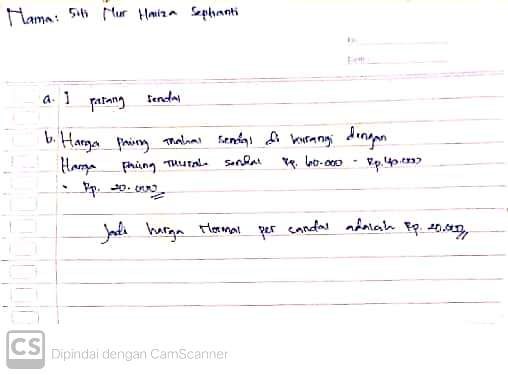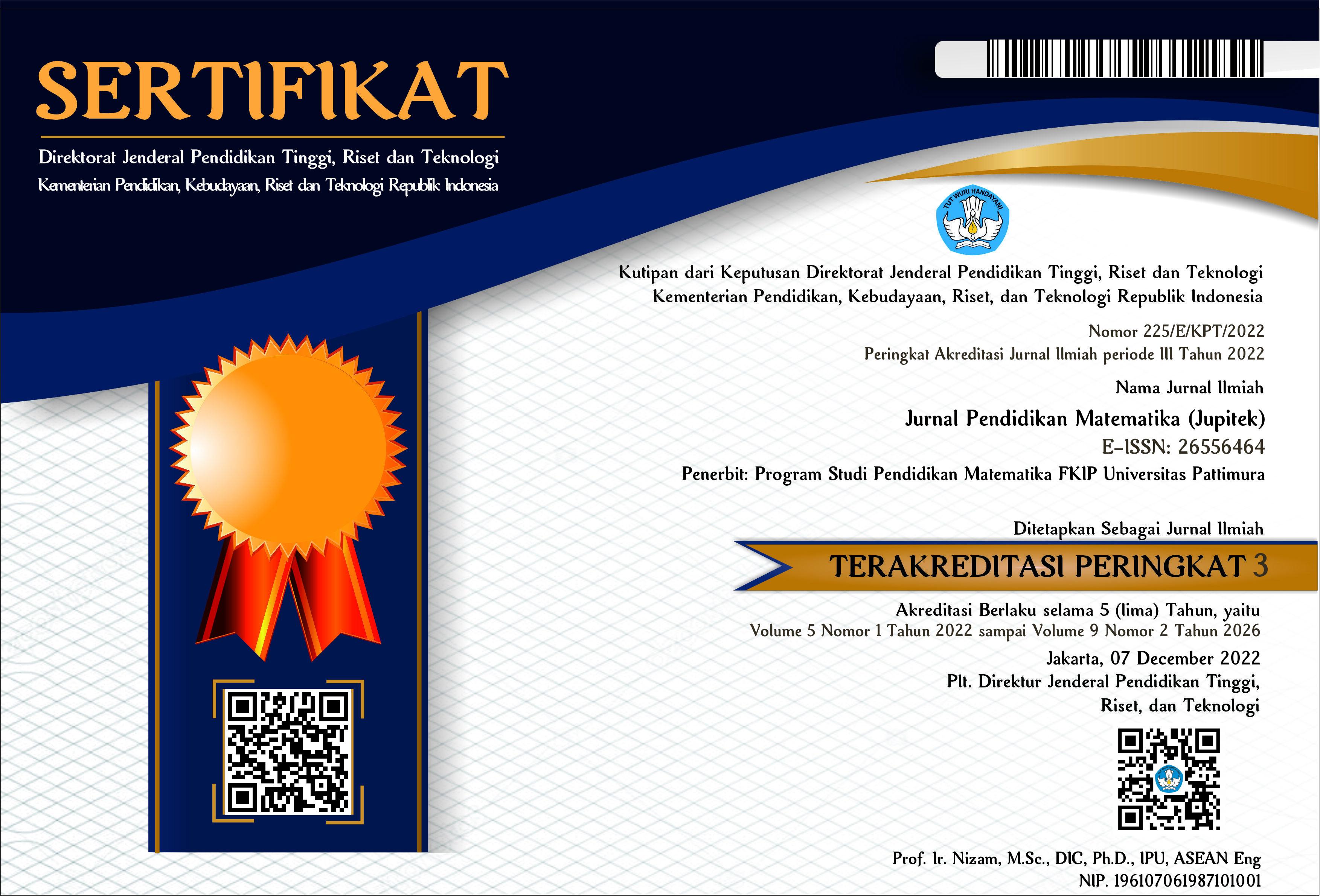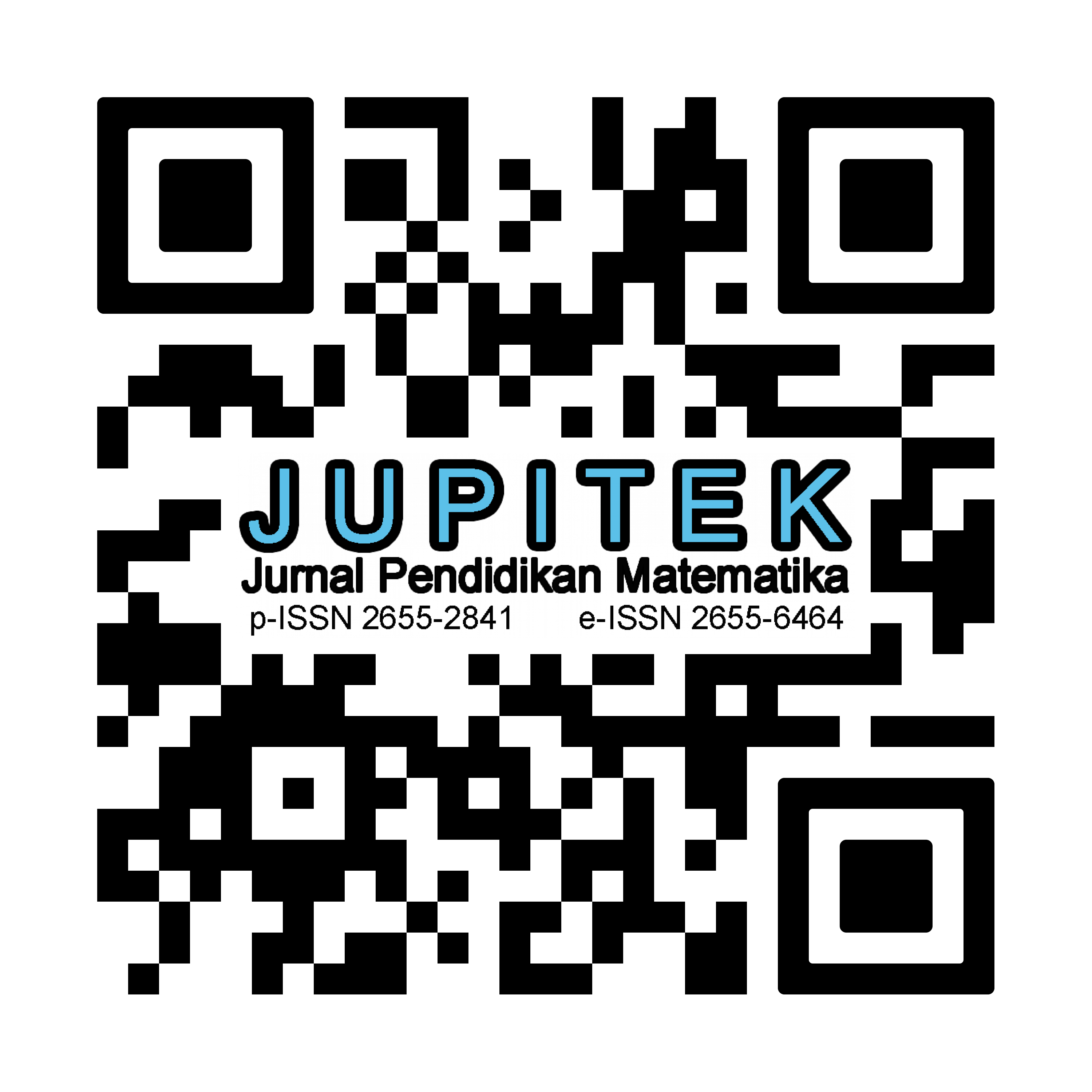ANALISIS KESALAHAN SISWA SMP DALAM MEMBUAT PEMODELAN MATEMATIKA
Abstract
Pemodelan merupakan tahap penting dalam penyelesaian masalah matematika, terutama pada jenis soal cerita. Namun demikian, proses pemodelan seringkali menjadi masalah utama bagi siswa. Tujuan penelitian adalah untuk mendeskripsikan kesalahan siswa SMP dalam membuat pemodelan matematika dan faktor yang menyebabkan terjadinya kesalahan tersebut. Penelitian ini adalah penelitian kualitatif dengan menggunakan pendekatan deskriptif pada siswa kelas VIII SMP Negeri 2 Modo, Lamongan pada semester Ganjil Tahun Ajaran 2020/2021. Teknik pengumpulan data yang dilakukan berupa tes dan wawancara. Hasil penelitian ini menunjukkan bahwa kesalahan yang terjadi adalah siswa tidak dapat mengidentifikasi variabel-variabel soal, membuat asumsi yang salah, dan membentuk persamaan yang tidak mewakili masalah. Penyebab internal kesalahan tersebut adalah tidak memahami komponen-komponen masalah, menggunakan nalar atau insting sendiri dalam menyelesaikan soal cerita, tidak memperhatikan keterkaitan antar komponen masalah. Sedangkan faktor eksternalnya adalah tingkat kesulitan soal yang diberikan cukup tinggi dan kurangnya sumber referensi yang memadai
Downloads
References
Amala, M. A & Ekawati, R. (2016). Profil Proses Matematisasi Horizontal dan Vertikal Siswa Smp Dalam Menyelesaikan Masalah Kontekstual Pecahan Ditinjau dari Kemampuan Matematika. MATHEdunesa Jurnal Ilmiah Pendidikan Matematika, 3(5), 301– 309.
Ang, K. C. (2001). Teaching mathematical modelling in Singapore schools. The Mathematics Educator, 6(1), 63–75. Retrieved from https://repository.nie.edu.sg/handle/10497/49
Budiyono. (2008). Kesalahan Mengerjakan Soal Cerita dalam Pembelajaran Matematika. Jurnal Pedagogia, 11(1), 1–8.
Dym, C. L., & Ivey, E. S. (2004). Principles of Mathematical Modeling. Amsterdam: Elsevier
Gunawan, A. (2016). Analisis Kesalahan dalam Menyelesaikan Soal Cerita Pada Mata Pelajaran Matematika Siswa Kelas V SDN 59 Kota Bengkulu. Jurnal PGSD: Jurnal Ilmiah Pendidikan Guru Sekolah Dasar, 9(2), 216–255.
Ischak dan Warji. (1987). Program Remedial dalam Proses Belajar Mengajar. Yogyakarta: Liberty
Ndii, M. Z. (2018). Pemodelan Matematika. Yogyakarta: Penerbit Depublish.
Nugroho, F. A. (2017). Kemampuan Siswa Menyelesaikan Soal Cerita SPLDV Ditinjau dari
Taksonomi Solo Kelas X. Universitas Muhammadiyah Surakarta.
Nuryadi. (2014). Keefektifan Pendekatan CTL dan PPM Pembelajaran Matematika Metode GTG Ditinjau Keaktifan dan Prestasi Siswa Effectiveness of CTL Approach and PPM with GTG Method on Mathematics Teaching in Terms of Learning Activeness and Achievement of the Students. PYTHAGORAS: Jurnal Pendidikan Matematika, 9(1), 22–30.
Rahmania, L., & Rahmawati, A. (2013). Analisis Kesalahan Siswa dalam (Analysis of Student’S Errors in Solving Word Problems. Darul Ulum, 1(2), 165–174
Rahmawati, F. (2013). Pengaruh Pendekatan Pendidikan Realistik Matematika dalam Meningkatkan Kemampuan Komunikasi Matematis Siswa Sekolah Dasar. Prosiding
SEMIRATA 2013, 1(1), 225–238. http://jurnal.fmipa.unila.ac.id/index.p hp/semirata/article/view/882
Rindyana, B. S. B., & Chandra, T. D. (2013). Analisis Kesalahan Siswa dalam Menyelesaikan Soal
Cerita Matematika Materi Sistem Persamaan Linear Dua Variabel Berdasarkan Analisis Newman.
Sari, P. R. (2018). Analisis Kesalahan Siswa SMP dalam Menyelesaikan Soal SPLDV. Prosiding Seminar Nasional Etnomatnesia.
Shodikin, A., Istiandaru, A., Purwanto, Subanji & Sudirman (2019a, March). Thinking errors of pre-service mathematics teachers in solving mathematical modelling task. In Journal of Physics: Conference Series (Vol. 1188, No. 1, p. 012004). IOP Publishing.
Shodikin, A., Novianti, A., & Sumarno, W. K. (2019b, February). Mathematics pre-service teachers’ thinking process in solving modeling task in differential calculus course. In Journal of Physics: Conference Series (Vol. 1157, No. 2, p. 022127). IOP Publishing.
Widowati, & Sutimin. (2007). Buku Ajar Pemodelan Matematika. Semarang: FMIPA Universitas Diponegoro.
Zulfah. (2017). Analisis Kesalahan Peserta Didik pada Materi Persamaan Linear Dua Variabel di
Kelas VIII MTS Negeri Sungai Tonang. Journal Cendekia: Jurnal Pendidikan Matematika, 1(1), 12–16.
Zulfah, Astuti, Insani, S. U., Zulhendri, & Akbar, P. (2019). Development of Open-Ended Based
Mathematics Problem to Measure High-Level Thinking Ability Development of Open-Ended
Based Mathematics Problem to Measure High-Level Thinking Ability. Journal of Physics:
Conference Series, 0–8. https://doi.org/10.1088/1742-6596/1315/1/012047
Zulyanty, M. (2019). Newman Error Analysis Siswa Madrasah dalam Menyelesaikan Soal Cerita Matematika. Jurnal Cendekia: Jurnal Pendidikan Matematika, 3(2), 379–388. https://doi.org/10.31004/cendekia.v3i2.121

Copyright (c) 2021 Mas Fiyah, Ali Shodikin

This work is licensed under a Creative Commons Attribution-NonCommercial-ShareAlike 4.0 International License.
License and Copyright Agreement
By submitting a manuscript to Jurnal Pendidikan Matematika (JUPITEK), the author(s) certify and agree to the following terms:
- Originality and Authority: The submitting author is authorized by all co-authors to enter into this agreement. The manuscript describes original work that has not been published previously in a peer-reviewed journal, nor is it under consideration for publication elsewhere.
- Approval: Its publication has been approved by all author(s) and by the responsible authorities of the institutions where the work was carried out.
- Rights: The authors secure the right to reproduce any material that has already been published or copyrighted elsewhere.
- Licensing and Copyright: Authors retain the copyright to their work.
- License Grant: The authors grant Jurnal Pendidikan Matematika (JUPITEK) the right of first publication, with the work simultaneously licensed under the Creative Commons Attribution-NonCommercial-ShareAlike 4.0 International (CC BY-NC-SA 4.0).
- Self-Archiving: Authors are permitted and encouraged to deposit the published version of their article in institutional repositories, on their personal websites, and other academic platforms, with proper acknowledgment of its initial publication in Jurnal Pendidikan Matematika (JUPITEK).





.png)


